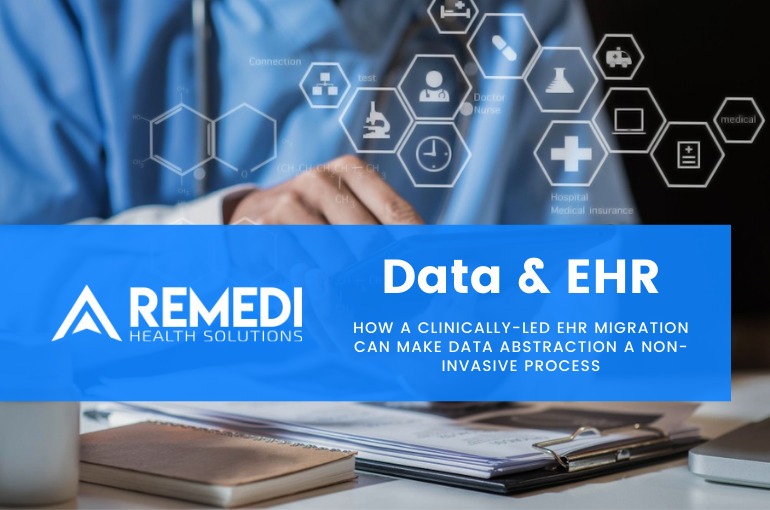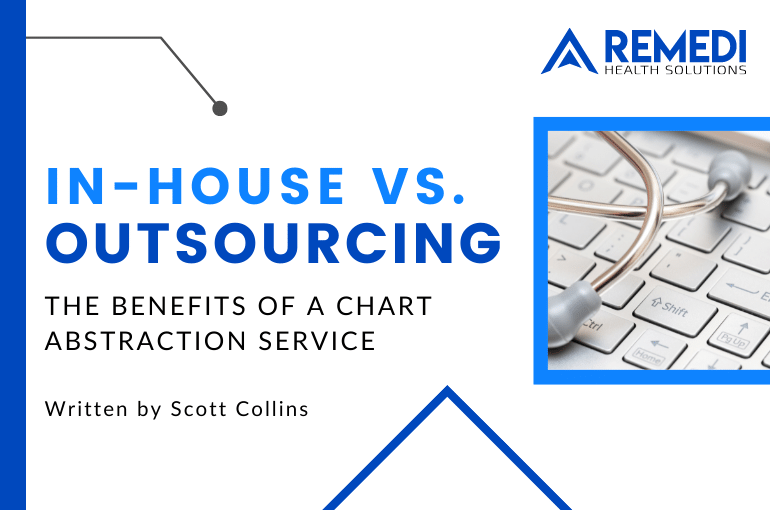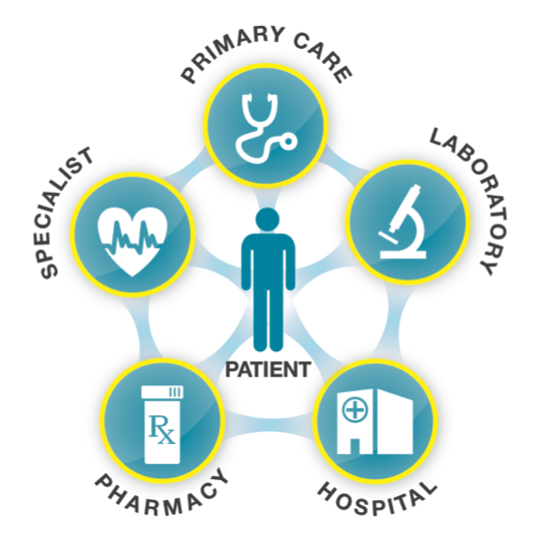Implementing a new EHR is an increasingly difficult process for healthcare institutions. Adding to it is another hurdle of migrating data and records from an old EHR system to a new one like Cerner, Epic, or others. It becomes incredibly difficult and time-consuming to filter, check, and transfer data from traditional medical record keeping methods to a new, advanced EHR system. The problems that generally arise with migrating from an existing system stem from compatibility, duplicates, or different codes/forms.
Successful data migration requires proper planning and expert support with healthcare IT experience to seamlessly transfer records and data. However, what is the exact cost of spending resources, time, and effort in the data migration process?
Why Data Matters to Clinicians and Patients
Electronic Health Records and substantiating data that go along with them have steadily become a very large concept in the minds of the public; it works as a cohesive document that in a single eyeshot, disperses pertinent information and stats. Everyone can easily recognize some of the ways their data can be important, but for healthcare institutions that data can be life-changing.
Some examples of useful and relevant EHR data include:
- Accurate Problem Lists
- Demographics
- Histories
- Allergies
- Current Medications
- Lab Results
- Immunizations
There’s so much information about every single patient which is critically important to the physician serving them. Even social determinants like, “the conditions of the places where people live, learn, work, and play that affect an individual’s level of health risks,” are important when looking at the big picture of a patient’s health. Physicians are required to keep track of all this data and even more such as insurance plans and visits to other healthcare institutions.
EHRs help manage all this data and allow physicians to use this data in even more impactful ways. Analytic systems built into EHRs can help physicians see things they might normally miss or automatically push for certain tests based on the available data. Vast amounts of data can be an intimidating variable when it comes to transitioning to a new EHR system though.
EHR Migration: Moving Data Efficiently and Effectively
The most daunting task for a healthcare institution when digitizing systems is the migration of data from an old EHR system to a new system like Cerner or Epic. Some hospitals and institutions opt for a fresh start all together, foregoing data migration and not transferring all of their existing data into the new EHR system. This results in both patients and physicians losing out on significant value and insights from medical data. Naturally, medical providers lose optimal functionality of the EHR software and it becomes more expensive than migrating systems due to all of the value lost from customers.
To make this process smooth and non-disruptive to allow health institutions to operate and grow their businesses with their data strategy, ReMedi helps to plan out all of the strategic steps of EHR migration. We make sure that ability or cost don’t become limiting factors when evaluating the implementation of a new EHR system and process.
Here are just a few of the benefits of working with ReMedi to migrate data to a new EHR:
- Eliminate the burden of switching back and forth from EHR to legacy system
- Meet all quality guidelines and regulatory compliance
- Find information, electronically perform tasks, and prescribe more efficiently and easier
- Reduce errors from out-dated, missing, or duplicate data
- Greener than traditional systems or keeping multiple systems
Another important reason for migrating data forward to a new EHR is that more healthcare institutions are exchanging data regularly for patients that visit multiple healthcare providers. This means every healthcare institution requires a reliable and compatible EHR system to facilitate exchanging data without errors that could cause detriment to the patient.
ReMedi’s team of Physicians and clinicians lead you and your organization across the EHR finish line with empathy.
There is a lot of planning and resources involved with EHR implementation and data migration. ReMedi’s leadership and EHR consultants come from a clinical background, and have experience that can help healthcare institutions better understand the opportunities that arise from an innovative approach to EHR data.
ReMedi’s core EHR team are physicians first, so they understand exactly how EHRs and data migration affect physicians directly.
ReMedi’s approach to EHR data migration is to develop and provide strategic and supportive services to augment and assist healthcare staff based on specific project characteristics, goals, challenges that the healthcare organization faces. From timing and budget to the manpower necessary to review and abstract all records, ReMedi improves all aspects of the EHR along the way. With access to a ReMedi IT support team, institutions of all sizes are able to migrate their data promptly and support their staff during critical moments of patient care.
A critical component of data migration is filtering the medical records; deciding how to organize them for migration and ensuring older codes and forms will be properly migrated and work within the new system. This is also the best time to clean up records by scrubbing duplicate or outdated records, checking for errors, and other valuable data cleaning measures to ensure old problems are not going into the new system.
ReMedi has over 15 years of experience with developing and implementing multiple EHR systems across medical systems of all sizes. We ensure the highest accuracy and compliance when migrating EHR records. Successful data migration alone does not simply translate to overall provider growth and patient satisfaction. ReMedi helps implement ambulatory workflows and scenarios to ensure all medical services are correctly and properly supported with EHR data and processes that provide patients more value. ReMedi continues to serve its mission of impacting healthcare providers positively and helping healthcare institutions go above and beyond with their EHR strategy.
If you’d like to connect with one of our experienced EHR Physicians or EHR consultants, send us a message at info@remedihs.com.




